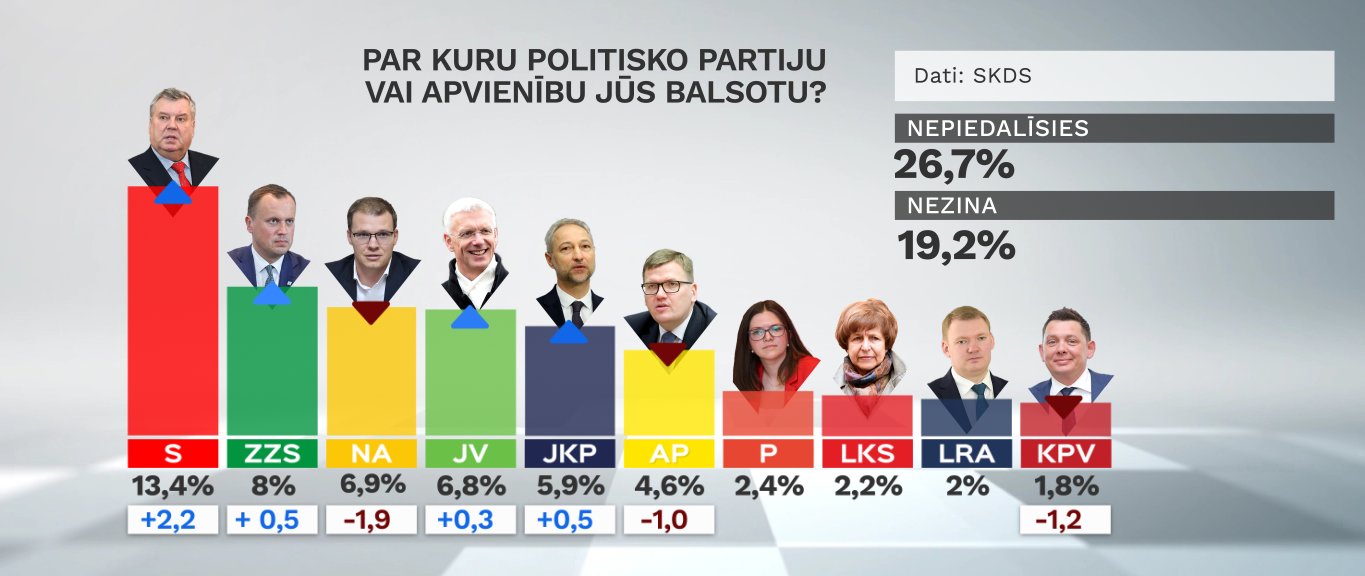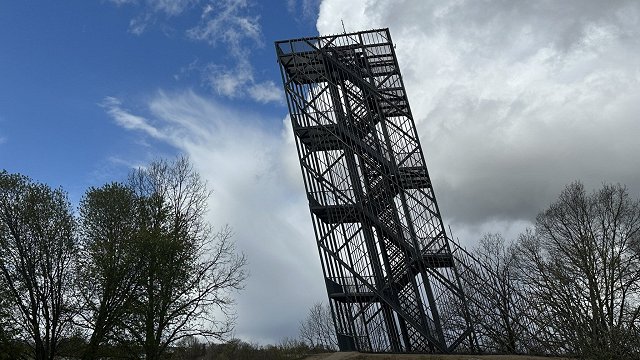The ZZS rating does not, however, reflect the impact of US sanctions on Aivars Lembergs, a key figure within ZZS, as the survey was conducted before that news broke.
Asked for whom they would vote if an election was held immediately, voters retained their usual lack of enthusiasm for any of the alternatives. 26.7% of those surveyed said they would not vote at all and 19.2% said they were undecided, leaving nearly half the electorate as "floating" voters.
Of those who did express a preference, 13.4% supported Harmony, 8% supported ZZS and 6.9% supported the National Alliance.
Next came New Unity on 6.8%, the New Conservative Party on 5.9% and Development/For on 4.6%. No other party managed to muster more than 2.4%.
During Saeima elections, 5% of the vote is required to win seats in parliament.
Over the year as a whole, only New Unity managed to improve its ratings, but even this rise was modest, from 4.0% in January to 6.8% in December. The biggest loser of support was KPV LV which saw its rating collapse from 7.1% in January to just 1.8% in December.
Coalition parties will be hoping that the trend is the usual mid-term disillusionment after the first year of the coalition's existence (PM Krišjānis Kariņš will mark his aniversary on January 23) and that once key reforms are in place, voters may become more forgiving.
Opposition parties meanwhile will be hoping they can consolidate their positions as the top two parties in the affections of voters.




































